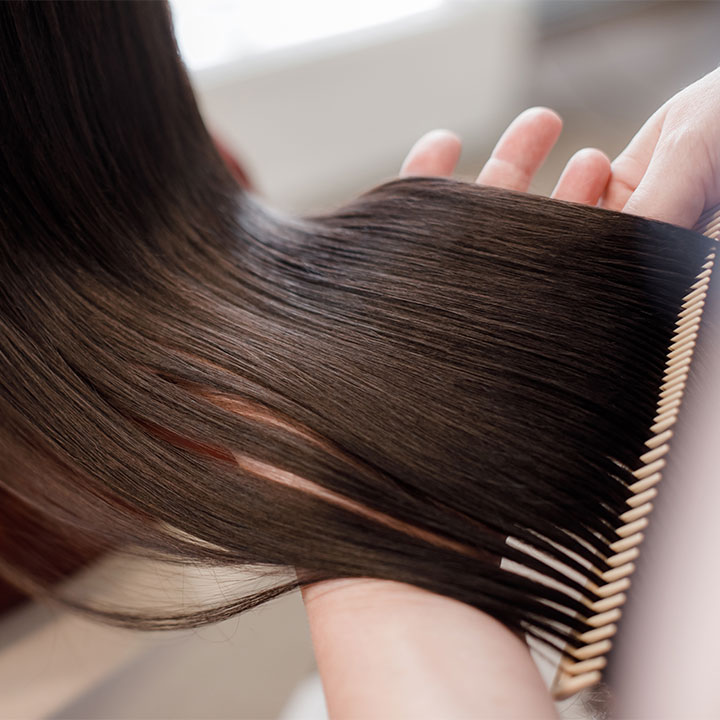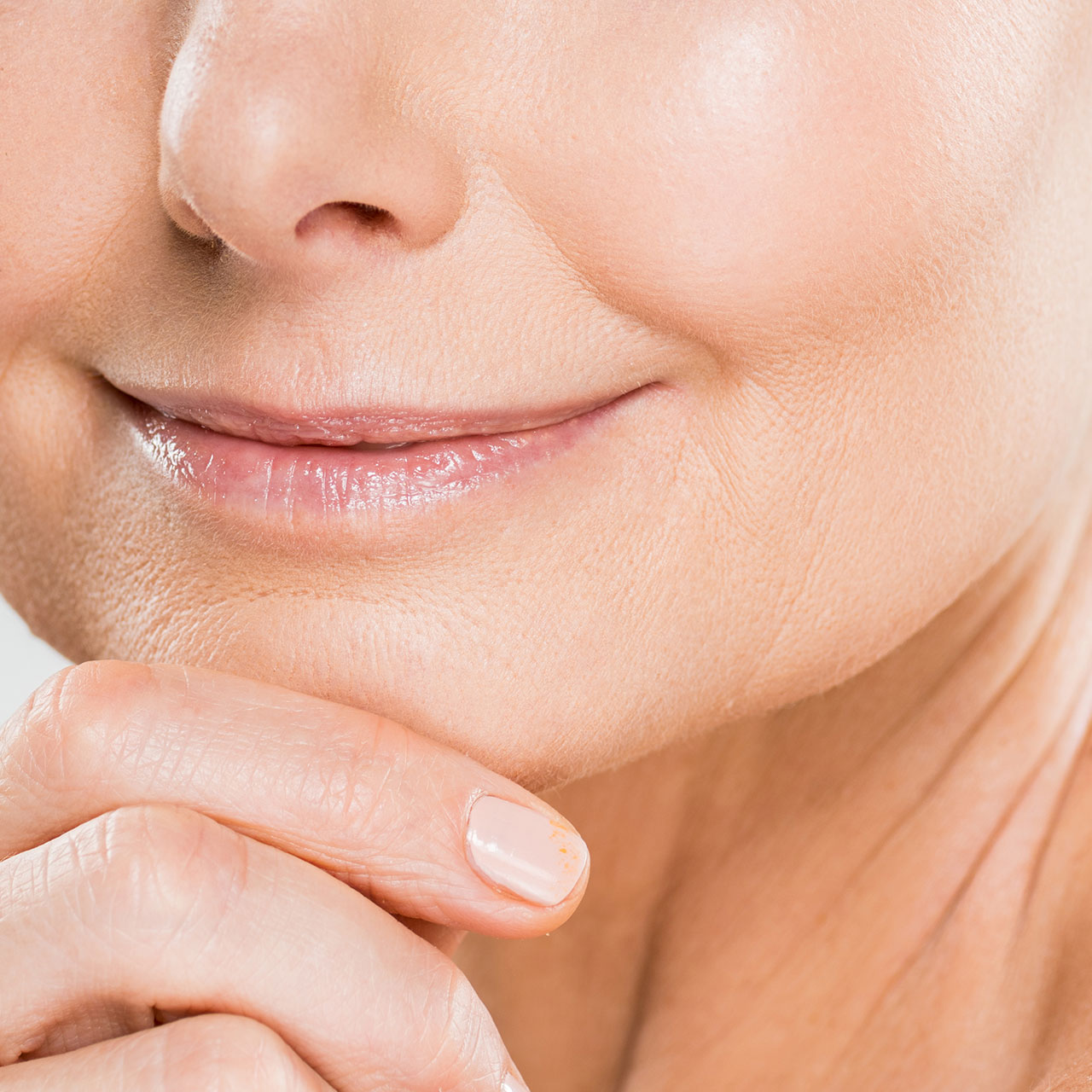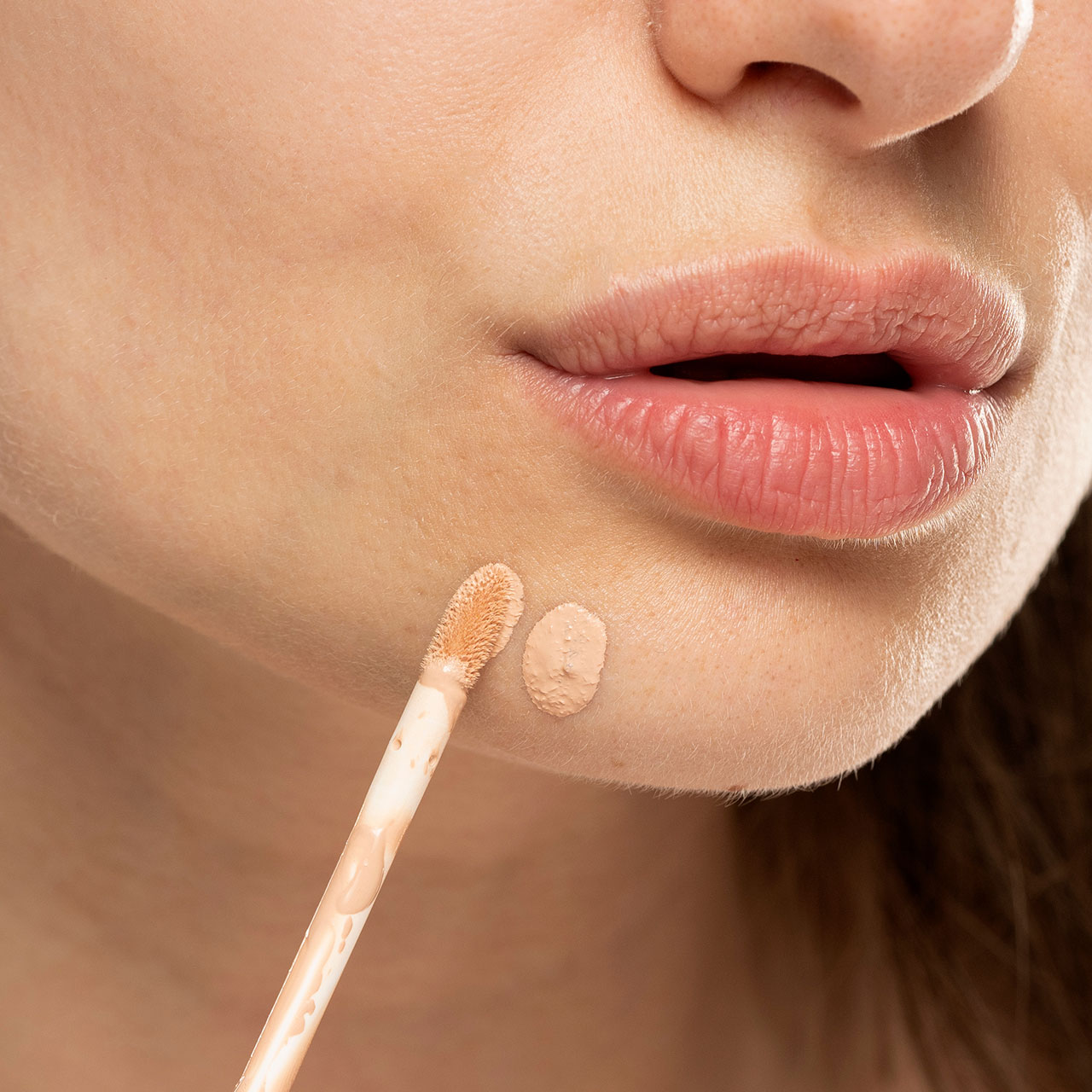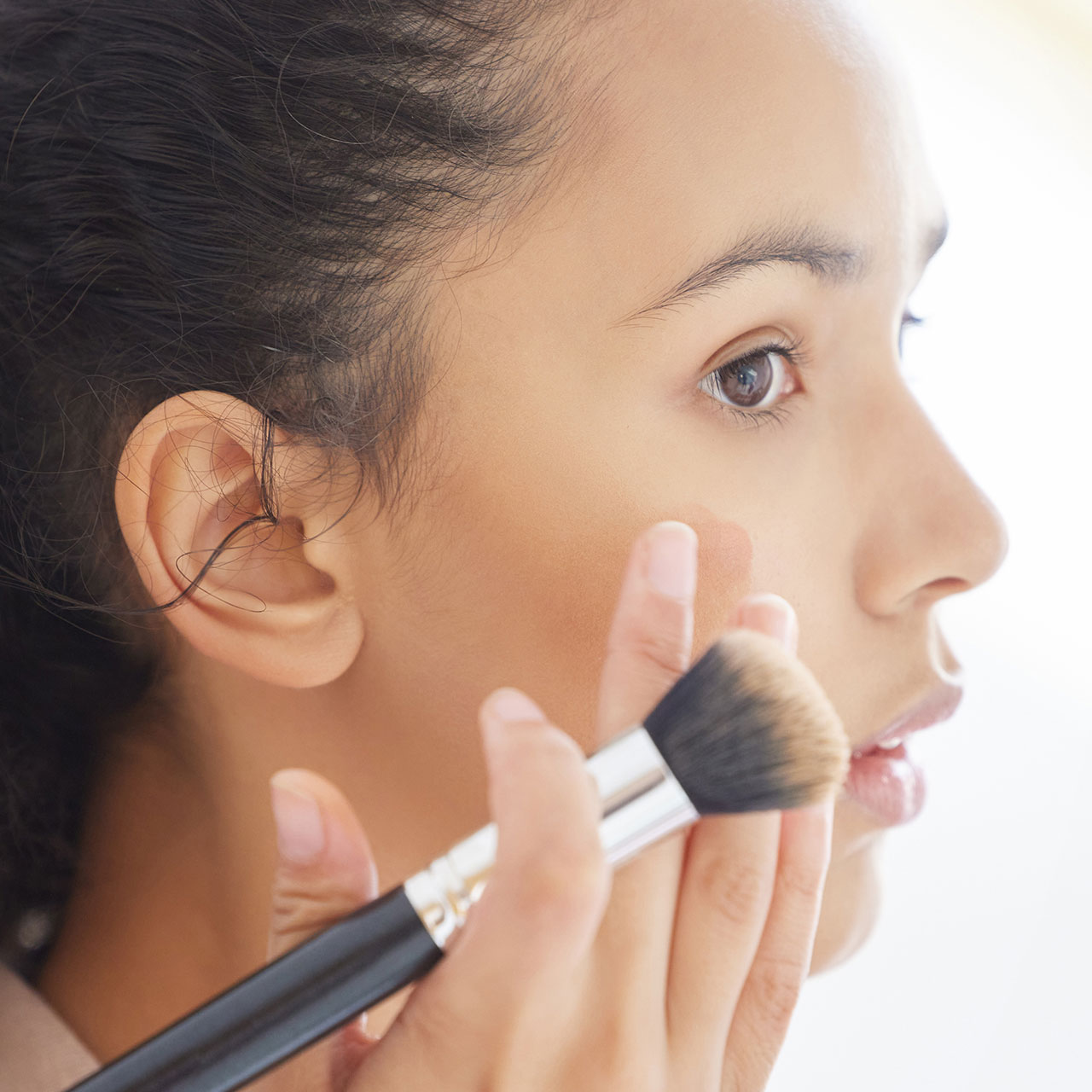As you get older, your body undergoes several changes. Your hair, in particular, is one area that’s greatly affected. In fact, thinning hair is perhaps one of the most common struggles people face nowadays. It’s definitely a frustrating experience but thankfully, there are ways to improve your current condition.
So with that in mind, how exactly do you grow thicker hair? We asked hair experts Dr. Isfahan Chambers-Harris of Alodia Hair Care, Dr. Gaby Longsworth, PHD Scientist, Certified Hair Practitioner and Owner of Absolutely Everything Curly, and Ghanima Abdullah, hair expert and cosmetologist of The Right Hairstyles to find out. Keep reading to learn more.
First of all, what causes thinning hair?
According to Dr. Chambers-Harris, “There are many conditions that can cause the hair to be thin.” Below are some examples:
- Nutritional deficiencies such as crash dieting, Vitamin D or Zinc deficiency, and excessive Vitamin A,
- Traumatizing event to the body such as a major surgery, sickness, and psychological stress
- Conditions associated with the endocrine system: Post-pregnancy (post-partum thinning), hypo and hyperthyroidism, and birth control pills
- Certain medications such as beta blocker and ACE inhibitors blood pressure meds, cholesterol lowering drugs, or blood thinners
- Genetics: You may genetically have low density hair.”

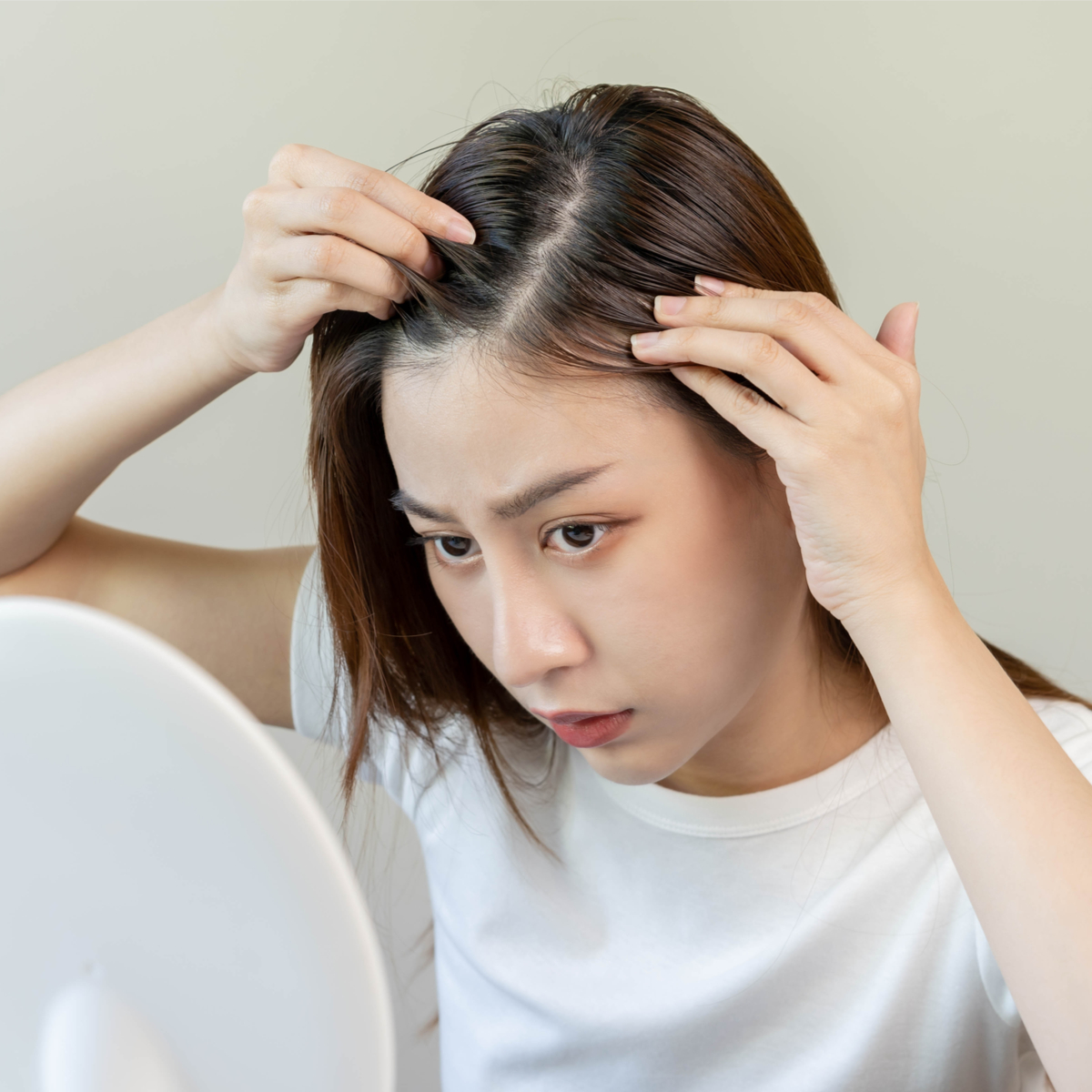
Additionally, Dr. Longsworth elaborates how the following factors are also possible causes for thinning hair:
•Diet/Dietary Deficiencies - Not getting enough vitamin D (whether from sunlight or diet) is a common cause of hair thinning. Additional nutritional deficiencies linked to thinning hair include protein deficiency, as well as deficiencies in several vitamins and minerals, such as vitamins B, C, and E, biotin, iron, and zinc.
•Stress, certain medications, and illness - For example, an inflamed thyroid gland can cause an imbalance of thyroid hormones, which can lead to hair loss and thinning.
•Improper Diet - A diet high in saturated fat and sugary drinks, processed snacks, and low in fruits and vegetables can also be a culprit
•Hormones - Decreased estrogen levels are common mid-life. Several hormones, but especially estrogen, keep hair from shedding and give the appearance of thicker, fuller hair.
•Lower sebum production - With age and declining hormone levels (menopause), hair loses density, shine, and pigment, and the sebaceous glands in the scalp produce less sebum. In fact, sebum production decreases by 50% between the ages of 45 to 60 in the average woman. The hair becomes drier and dry hair breaks more easily.
•Too tight hairstyles - Other common causes of hair thinning especially at the temples, include pulling the hair and using tight hair bands. Similarly, traction alopecia can be caused by the long-term too tight braiding of the hair. Tight braids, weaves, dreadlocks, cornrows, and heavy extensions can cause severe and irreversible hair loss and subsequent thinning.
•Using too much heat - Using too high heat from blow dryers and curling irons damages the outer cuticle layer exposing the underlying cortex. The hair gets too dry and brittle and breaks off. These 2 breaks cause thinning of the hair at mid-length to the ends where the hair is older. Because the hair breaks off, it appears it is not growing (when in fact it is growing but breaking off).
Similarly, Abdullah mentions, "There are several things that can thin your hair when it was thicker before." She says, "The most common factor is age. If you're over 40, you'll gradually notice your hair thinning." Abdullah points out that thinning hair can also be caused by alopecia. "If you have a genetic form of alopecia, and you're a woman, you'll notice thinning on the crown of your head, at the temples, over your ears, or just diffuse thinning that affects your whole head of hair. Alopecia isn't always genetic, however," she explains.
"Some forms of hair loss are caused by the improper use of harsh chemicals like bleach, hair dyes and perms or relaxers. Hair loss can also be caused by high heat damaging the hair follicles," she tells us. "Sometimes we pull our hair into a ponytail too often or sleep in one and notice hair thinning in that area as well." Abdullah notes, "Anything that has the potential to harm or damage your hair follicles can also be a cause of hair thinning."

Simple Habits To Grow Thicker Hair
Treating alopecia or thinning hair can be reversed or slowed down. Abdullah shares, "Even if you're talking about genetic forms of alopecia, using a hair loss shampoo, for example, can cause your hair to thin a lot slower." Below, she notes the best practices you can follow to grow thicker hair:
•"The first thing you should do is substitute your current shampoo with a hair growth shampoo. Use one that can help you grow your hair back."
•"Try to stop any practices that could be harming your hair follicles. Anything you're doing that's resulted in more hair loss is probably something that you can cut out of your hair care routine."
•"Once you've gotten into a better routine of caring for your hair and not harming it, look for hair growth serums and vitamins that boost your hair growth. If you're using a hair growth shampoo, serum, and vitamins at the same time, [they should all complement each other]."
Dr. Longsworth also gives us a list of some simple habits you can add to your daily routine:
•"Avoid forceful brushing and combing dry hair as these are major causes of hair thinning - Brushing dry curls is an absolute no-no. Curls should only be brushed, if at all, and even then gently, when soaking wet with a slippery conditioner or detangler. And only with appropriate brushes or wide-toothed combs designed for curly hair."
•"Always detangle the hair starting from the ends and gently work your way up to the roots."
•"Let your hair dry naturally or use low heat at least 6 inches away."
•"Deep condition regularly and if the hair is often dry, seal in moisture with a styler, cream, or oil."
•"Use a scalp massager to stimulate blood flow to the follicles and/or to remove build up on the scalp during washing. Remember healthy scalp equals healthy hair."
•"Use a bond-building treatment at home, such as Olaplex#3, between color services and other chemical treatments."
•"When in the sun for an extended period, cover your hair."
•"Get regular trims (every 3-6 months) to prevent split ends and breakage."
•"Use a water filter in the shower. Hard water is high in heavy minerals, such as calcium and magnesium. These can build up in your hair and crystallize on the scalp and hair shaft, obstructing your hair from absorbing moisture, and making the hair heavy and brittle. This leads to tangles, knots, and the inevitable hair breakage and thinning."
•"Use a gentle clarifying cleanser (shampoo) regularly. Over time there can be a buildup of pollutants, silicones, dirt, and products on your hair, which may cause it to become dry and brittle as the buildup prevents moisture from reaching the hair strand’s core."
•"Take a daily vitamin and have your vitamin D and thyroid levels checked (Get a yearly physical). Biotin drops and collagen powder can be effective in growing hair in thinning areas."
•>"Focus on eating healthy nutritious foods and drink plenty of water every day."
If your hair is not genetically thin, Dr. Chambers-Harris recommends seeing if you are experiencing any of the conditions previously mentioned. If you are, she suggests that it's best to have a conversation with your doctor to see what your options can be to increase the thickness of your hair. "You should also adopt a nourishing hair and scalp weekly routine that can supplement any treatment your doctor prescribes," she advises.
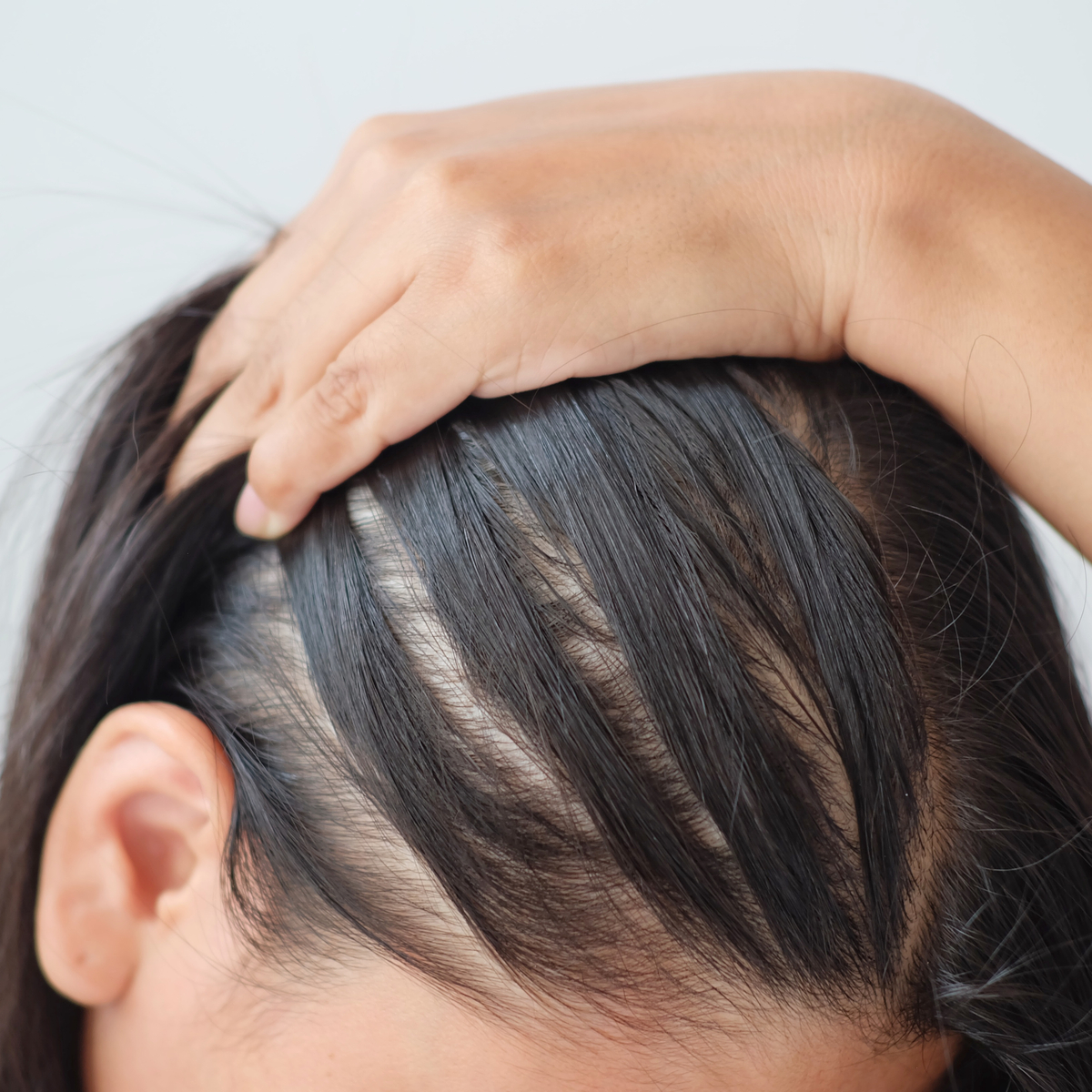
Other Tips You Should Know About Having Thicker Hair
At the end of the day, Dr. Chambers-Harris emphasizes that "the number one thing to do is to understand what is causing your hair to be thin." Ask yourself: Is it caused by any one of the conditions listed above? If so, she suggests the best course of action is to visit your doctor because the thinning is perhaps caused by something going on internally in the body. However, if your thinning is being caused by external factors such as bad hair care practices, she recommends using one of Alodia's nourishing hair kits weekly to allow your hair to retain some thickness.
Abdullah concludes, "Don't expect immediate results. Growing thicker hair takes four to six months." Taking all these expert-approved tips will definitely be helpful in the longrun! Trust us, your future self will thank you for it.





